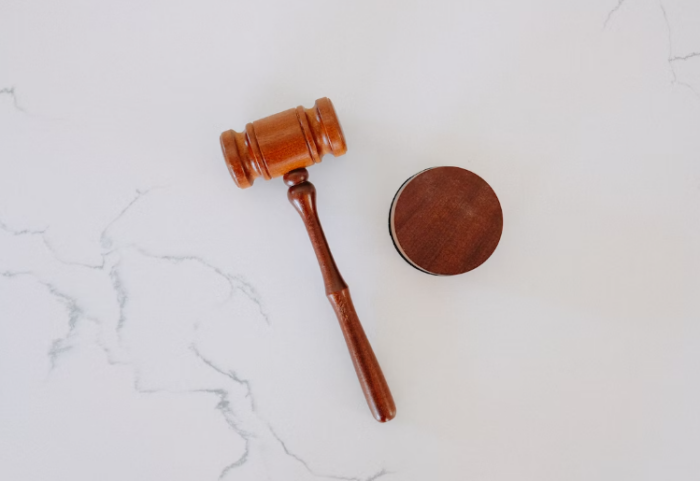06 Dec How to Respond To An Allegation of Trade Mark Infringement
Trade marks are a valuable form of intellectual property. They can be used to protect your brand, and they can help to distinguish your products from those of your competitors. However, trade marks can also be infringed upon by others and you may receive an allegation of trade mark infringement during your business journey. If someone is alleging that you have infringed on their trade mark, there are a few steps you can take.
What is trademark infringement?
Trade mark infringement is the use of a trade mark, or a similar mark, without the owner’s consent in relation to goods or services which are identical or similar to those for which the trade mark is registered. This is likely to cause confusion among consumers as to the source of the goods or services. If a trade mark is registered, the owner has the exclusive right to use that trade mark in relation to those goods or services.
The registration of a trade mark gives the owner a valuable asset which can be used to protect their brand and all their investment in it. Use of a registered trade mark without the owner’s consent can damage the value of the trade mark and adversely affect the goodwill associated with the brand. In some cases, it may also amount to the tort of passing off. Passing off occurs when someone uses a brand name or logo to try to either mimic that particular brand or are endorsed with or are somehow associated with it. This can mislead, deceive or confuse customers and damage the infringed business’ reputation and brand value. Allegations of trademark infringement will usually also allege misleading and deceptive conduct under the Australian Consumer Law (ACL). If you have infringed on someone’s registered trade mark, they may be able to take legal action against you and it can be extremely serious.
Responding to an allegation of Trade Mark Infringement
If you receive allegations that you are infringing on someone’s trade mark, it is important to take these allegations seriously.
Trade mark infringement is a serious matter that can result in costly legal action. If you are found to be infringing on someone’s trade mark, you may be ordered to pay damages, their legal costs, Court fees, and/or even be required to stop using the infringing trade mark altogether.
Factors to consider with Trade Mark Infringement
There are several factors that must be considered in order to determine whether trade mark infringement has occurred, including whether there is a likelihood of confusion between the trade marks and whether the use of the trade mark is likely to damage the reputation of the owner.
If you are accused of trade mark infringement, it is important to seek legal advice as soon as possible in order to understand your rights and obligations. Trade mark infringement can be a complex area of law, and there may be a number of defences available to you.
Many allegations of infringement are made without any foundation, and can be quickly resolved. It is also important to remember that even if there is some merit to the allegation, there may be a defence available. For example, if the use of the mark is fair use or parody, then it is unlikely to amount to infringement.
If you receive an allegation of trade mark infringement, the best course of action is to seek legal advice first. Do not respond to it yourself without having that advice first, just in case you say something that may compromise your legal rights.
A qualified intellectual property lawyer will be able to assess the claim and advise you on the best way to respond. In many cases, a well-drafted letter from us will be enough to persuade the other party depending on the claim.
What can happen if I don’t respond to an allegation of trade mark infringement?
In the recent case of Nasib Baik Pty Ltd v Sydney Ridelender Pty Ltd \[2022\] FCA 301, Trade mark infringement, misleading and deceptive conduct and passing off proceedings were brought in the Federal Court of Australia. The Respondents failed to file any defence in the proceedings and the Applicant proceeded to file an interlocutory application for default judgment seeking orders for injunctive relief, nominal and additional damages.
The decision of her Honour Markovic J is a useful insight into the principles applied by the court when considering numerous injunctive orders sought in trade mark infringement cases as well as the principles applied when considering to award nominal and additional damages where the Respondents have failed to participate in the proceedings.
Key Takeaways
It is not uncommon for businesses to find themselves on the receiving end of allegations of trade mark infringement. This can be a daunting prospect, as it can potentially lead to costly legal proceedings. However, there are a few simple steps that can be taken in order to help avoid such allegations.
Firstly, it is important to ensure that your own trade mark is properly registered, under the right classes and legal entity. This will help to establish a clear record of your ownership of the mark and make it more difficult for someone else to claim that they are entitled to use it.
Secondly, you should carry out regular searches of registered trade marks in order to ensure that your use of the mark does not infringe on anyone else’s rights.
Finally, if you do receive an allegation of infringement, you should seek legal advice at an early stage in order to minimise the risk of the matter escalating into full-blown legal proceedings.
For trade mark and IP legal advice, please get in touch with us today via phone or the contact form on this page.
Contact Us
Related Articles
- 13 December, 2023
- 21 September, 2023

Ian Aldridge is the Founder and Principal Lawyer Director at Progressive Legal. He has over 15 years experience in advising businesses in Australia and the UK. After practising in commercial litigation for 12 years in major Australian and International Law Firms, he decided to set up a NewLaw law firm in Australia and assist growing Australian businesses. Since then, he has advised over 2,500 small businesses over the past 6 years alone in relation to Intellectual Property Law, Commercial, Dispute Resolution, Workplace and Privacy Law. He has strived to build a law firm that takes a different approach to providing legal services. A truly client-focused law firm, Ian has built Progressive Legal that strives to deliver on predictable costs, excellent communication and care for his clients. As a legal pioneer, Ian has truly changed the way legal services are being provided in Australia, by building Legal Shield™, a legal subscription to obtain tailored legal documents and advice in a front-loaded retainer package, a world-first. He has a double degree in Law (Hons) and Economics (with a marketing major). He was admitted to the Supreme Court of NSW in 2005.




